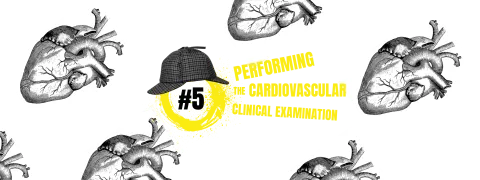
Dr. Love: Good morning, Mr. Parker. How are you feeling these days?
Mr. Parker: Pretty much the same as when I last saw you. No noticeable improvement, but no deterioration either. My hands still tremble when I’m trying to read my newspaper, and I still feel stiff; it takes me ages to get dressed or tidy away the breakfast things, and I’m having a bit of trouble speaking, you know, articulating words. Jaws don’t seem to work properly.
Dr. Love: Do you feel any strange sensations, like burning, coldness or numbness?
Mr. Parker: No, not so far, but sometimes some achy muscle cramps. The physiotherapy I’m having helps enormously.
Dr. Love: Good to hear that. What about the other symptoms I mentioned last time: urinary incontinence, erectile dysfunction, impaired sense of smell? Have you noticed any of those at all?
Mr. Parker: No, nothing like that.
Dr. Love: What about increased sweating, dizziness or difficulty swallowing?
Mr. Parker: No, everything's OK in that respect.
Dr. Love: And have you noticed any difficulty keeping your balance? I mean, do you ever get the feeling you might fall over?
Mr. Parker: No. In fact, I’ve been trying to get out and go walking as much as possible. It’s quite a challenge though; I can’t walk quite as well as I used to, but I don’t think I shuffle.
Dr. Love: That’s reassuring! Right, let’s have a look at you. We’ll just run through the same tests. We’ll start with the finger tapping – just tap your index finger against your thumb as fast as possible – spread them as far apart as possible…. OK. Now just relax your arm, I’m going to turn your wrist slowly – just relax. OK, that’s fine – and the other arm. OK. Now could you just tap your toes on the floor keeping your heel on the floor?… Right. Now relax your leg, I’ll just gently rotate your ankle. Fine. And the other leg. Now, I’d like you to cross your arms and stand up from the chair. Good – and now, could you walk to the door, turn round, walk back and sit down again?... Fine. Could you stand up again, and walk towards the door – I’m going to pull back on your shoulders… OK, that’s fine. It seems that the treatment's working quite well, the finger tapping and cogwheel rigidity in your wrist don’t seem to have got any worse, and your balance seems OK. I think we can maintain the Azilect alone for the moment; it seems to be sufficient. But later, we’ll have to add the L-dopa, as we discussed. Have you noticed any side-effects of your treatment?
Mr. Parker: No nothing in particular. I read the list of side-effects on the information leaflet, but I didn’t see anything that seemed to be affecting me..
Dr. Love: We’ll leave it like that then. By the way, have you found a way to travel around, do your shopping and the like?
Mr. Parker: Yes, I use public transport. But that was really tough, having to give up the car – took me a while to get used to it.
Dr. Love: Well, Mr. Parker, I’ll see you in three months. Just see my secretary on your way out and she’ll make the appointment.
Mr. Parker: Thank you, doctor.

|
A BRIEF HISTORICAL BACKGROUND Parkinson's (disease) is named after James Parkinson (1755-1824). He was an English surgeon who first described the shaking palsy (a.k.a. paralysis agitans), a disease characterised by shaking and difficulty with walking and movement coordination. Although he was not a Quaker (a Christian denomination also known as the Religious Society of Friends), his interest in general health made him care about the well being of others. In an "Essay on the Shaking Palsy" (1817), he depicted the symptoms of the disease as follows: "an involuntary tremulous motion, with lessened muscular power, in parts not in action and even when supported; with a propensity to bend the trunk forwards, and to pass from a walking to a running pace: the senses and intellects being uninjured". In the 19th century, a French neurologist, Jean-Martin Charcot renamed the disease in honour of James Parkinson. |
|
Fun time Do you know why lots of people are really worried about getting Parkinson's? Because it gives them the shakes.
What do you call a classical writer with Parkinson's and a drinking problem? Shakesbeer |
Exercise 2. Notez bien la différence entre :
I can’t walk quite as well as I used to. (Je ne marche pas aussi bien qu'autrefois > référence à un passé révolu)
et
It took me a while to get used to it. (Il m'a fallu un certain temps pour m'y habituer > référence à l'habitude passée, présente ou future)
Traduisez les phrases suivantes :
1) Je n'arrive pas à m'habituer à ce régime sans sel.
2) Autrefois, je fumais deux paquets de cigarettes par jour ; aujourd'hui, j'ai arrêté de fumer.
3) Il faudra vous habituer à vous déplacer en utilisant les transports publics.
4) Il ne s'est jamais fait à l'idée de devoir marcher avec une canne.
5) Il y a dix ans, elle s'habillait toute seule, mais maintenant, elle a besoin d'une aide ménagère pour l'aider.
6) Quand vous étiez enceinte, aviez-vous des étourdissements fréquents ?
|
1) I can’t get used to this salt-free/low-salt diet. 2) I used to smoke two packs a day; today, I’ve stopped smoking. 3) You’ll have to get used to travelling around on public transport. 4) He never got used to walking with a cane/walking stick. 5) Ten years ago, she used to get dressed on her own, but now, she needs a home help to give her a hand. 6) When you were pregnant, did you use to suffer frequent dizzy spells?
|













